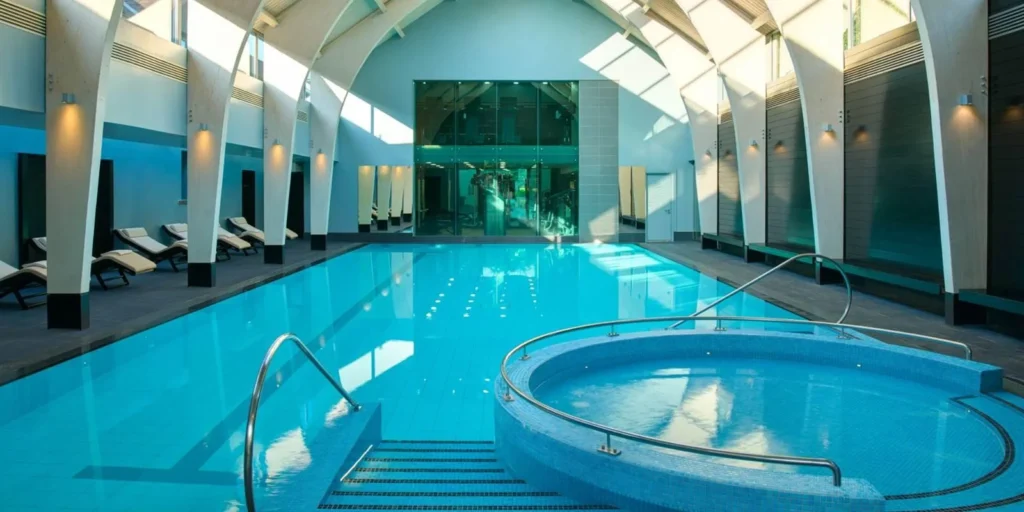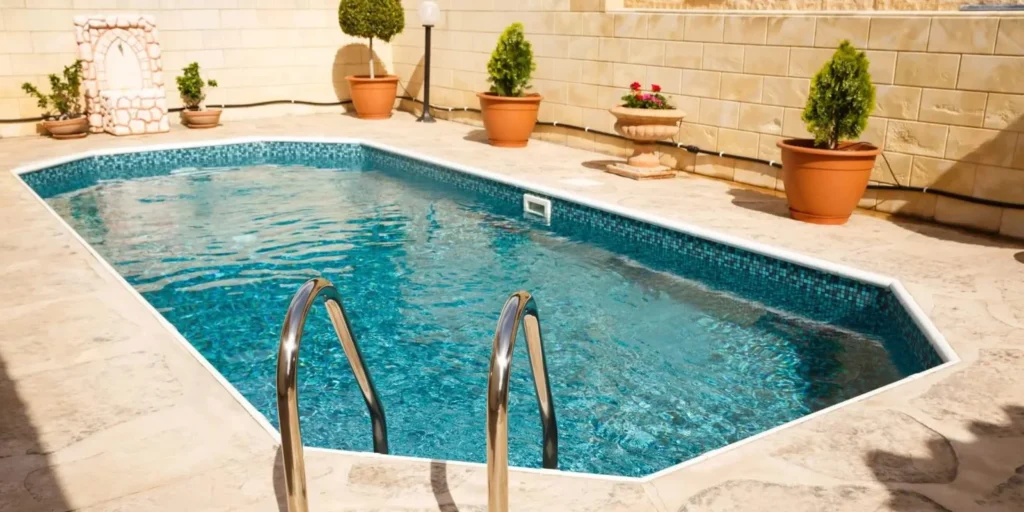Introduction
Free chlorine is a crucial element in pool maintenance. It helps ensure the water is clean and safe by attacking harmful microorganisms. However, when free chlorine levels become too high, it can cause problems like skin irritation and a strong chlorine smell. Addressing this issue quickly is vital to maintaining a healthy pool environment. In this article, we will provide expert advice on how to resolve high free chlorine levels in your pool promptly and efficiently.
Understanding Free Chlorine and Its Importance
Free chlorine refers to the amount of chlorine available to sanitize your pool water. Unlike combined chlorine, which has already reacted with contaminants, free chlorine stays active and keeps your pool water clean and clear.
Maintaining proper free chlorine levels is essential because:
- Sanitization: It helps kill bacteria and viruses, keeping swimmers safe.
- Algae Prevention: Proper levels prevent algae, maintaining clear water.
- Health and Safety: High chlorine can irritate skin and eyes, while low levels can lead to infections.
To appreciate the importance of free chlorine, it’s helpful to refer to comprehensive pool maintenance guides like the ones provided by Swim University.
Causes of High Free Chlorine in Pools

High free chlorine levels can arise due to several factors:
- Over-Chlorination: Adding excessive chlorine during maintenance.
- Stabilized Chlorine Products: Continuous use can result in buildup over time.
- Poor Water Circulation: Uneven chlorine distribution can lead to localized high levels.
- Environmental Factors: Sunny weather accelerates chlorine decay, prompting overcompensation.
Understanding these causes helps in identifying and rectifying issues promptly.
Testing and Monitoring Free Chlorine Levels
Regular testing of free chlorine levels is essential to maintain a balanced pool. There are several methods you can use:
- Test Strips: Simple and quick, these provide a color-coded reading.
- Liquid Test Kits: More precise, involving a chemical reaction.
- Digital Testers: Offering accuracy with straightforward digital readings.
Consistent monitoring ensures timely adjustments. For a detailed guide on pool water testing, you can refer to resources like Trouble Free Pool.
Maintaining balanced free chlorine levels is critical for pool hygiene and safety. By understanding what free-chlorine is, knowing the causes of high levels, and regularly testing, you can effectively manage your pool. Stay tuned for the next sections where we’ll provide immediate steps to lower high free chlorine and tips for long-term prevention.
Immediate Steps to Lower High Free Chlorine in Pool

If you notice that your pool has high free chlorine, acting quickly is essential. Here’s a step-by-step guide to bring those levels down fast:
- Stop Adding Chlorine: Halt the addition of any chlorine products, including liquid chlorine and chlorine tablets.
- Cover the Pool: Temporarily cover the pool to limit the creation of more free-chlorine from sunlight exposure.
- Dilute the Water:
- Add fresh water to the pool to help reduce chlorine concentration.
- Be sure to balance other pool chemicals accordingly after adding fresh water.
- Use Activated Charcoal: Add activated charcoal to the pool following the product’s instructions for reducing chlorine levels quickly.
- Apply Chlorine Neutralizer: Use specialized products like sodium thiosulfate to neutralize chlorine quickly. Follow the instructions on the label for the correct dosage based on your pool size.
By following these immediate steps, you can quickly lower high free chlorine levels and make your pool safer for use.
Long-term Prevention of High Free Chlorine
Keeping your pool’s chlorine levels balanced is essential for long-term water health. Here are some preventive tips:
- Proper Chlorination Techniques:
- Use the correct amount of chlorine based on your pool’s size and current conditions.
- Avoid overusing stabilized chlorine products, which can accumulate in the pool water and lead to high free chlorine levels.
- Regular Maintenance:
- Incorporate routine checks into your pool maintenance schedule to prevent chlorine spikes.
- Use a reliable test kit to measure free chlorine levels frequently.
- Balanced Pool Routine:
- Maintain a balanced routine by regularly checking pH, total alkalinity, and other chemical levels.
- A balanced pool helps prevent drastic changes in chlorine levels.
- Use a Pool Maintenance App:
- Consider using a pool maintenance app or a digital calendar to keep track of chlorine levels and other maintenance tasks. This can provide reminders and help maintain consistent water quality.
By following these guidelines, you can avoid the common pitfalls that lead to high free-chlorine in your pool and maintain a safe and enjoyable swimming environment.
When to Seek Professional Help
Sometimes, dealing with high free chlorine in your pool might require more than just DIY methods. Here’s when you should consider calling in a professional:
- Persistent Issues: If your free chlorine levels remain high despite your efforts, a professional can help identify underlying problems.
- Advanced Equipment Needs: Professionals have access to advanced testing and filtration equipment that you might not.
- Complex Pool Systems: For pools with complex systems or additional features like heaters and saltwater systems, professional help ensures all components function correctly.
Tips for Choosing a Reliable Pool Maintenance Service:
- Check Credentials and Certifications: Ensure the service is certified by relevant pool maintenance authorities.
- Read Reviews and Ask for Recommendations: Online reviews and word-of-mouth referrals can give you an idea of the service quality.
- Request Quotes and Compare: Compare quotes from multiple services to find one that offers good value for money.
- Ask About Their Services: Make sure they offer the services you need, from chemical balancing to equipment maintenance.
Summary and Final Tips
Final Tips:
- Keep a Maintenance Log: Track all your pool maintenance activities, including chlorine levels, to identify any recurring issues.
Keeping your pool’s chlorine levels in check ensures a safe and pleasant swimming experience. If you need consistent results, consider using professional pool maintenance services.
By following these steps, you can quickly and effectively resolve high free chlorine levels and maintain a clean and safe pool all season long.









